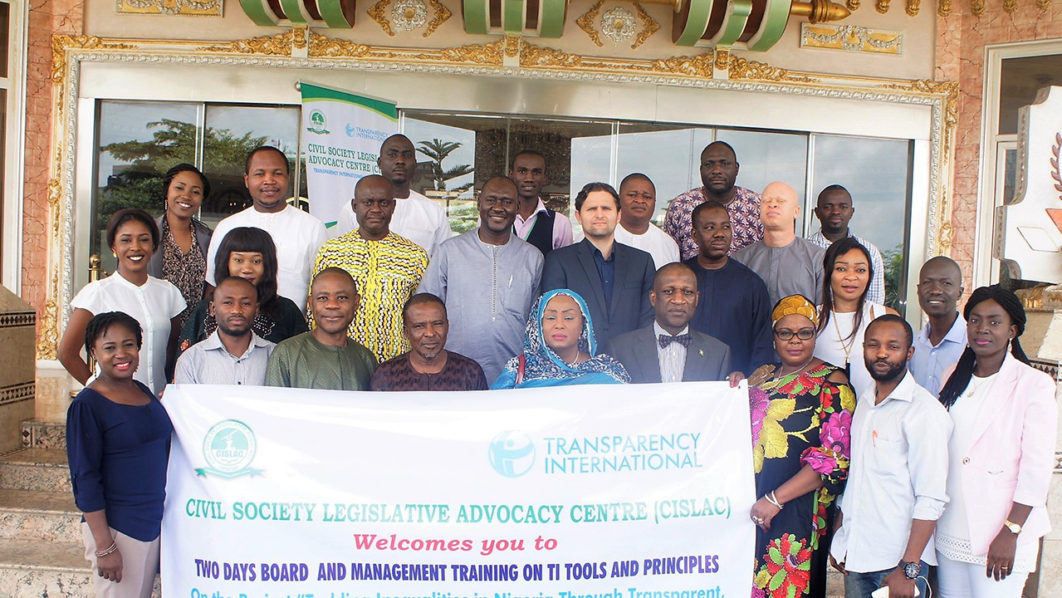
To this effect, the organization recently set up the Advocacy and Legal Advice Centre (ALAC) in Lagos State. It also created additional two centres in Delta and Kano States to empower citizens and pursue corruption-related complaints.
The Executive Director, Mr. Auwal Ibrahim Musa, iterated this during a one-day sensitization campaign held in Akure, Ondo State, to educate citizens, especially women on their rights.
Organized in partnership with Global Affairs Canada and Transparency International, Musa, who was represented by the Advocacy and Legal Advice Officer, Miss Bathsheba Tagwai, stated that the centre strengthens the link between civil society and the legislature through advocacy and capacity building on legislative processes and governance.
Tagwai further noted that ALAC is “a free, confidential and professional service that offers victims and witnesses of corruption an avenue to report and pursue incidences of corruption for redress.
“It provides legal advice and assistance to victims and witnesses of corruption; and set up a database on corruption in the country based on complaints received from the public.”
She identified the cases dealt with to include bribery and other types of petty corruption, grand corruption and conflict of interest across sectors such as health, education and land administration.
Listing all the processes employed to redress cases until a resolution is achieved, she added that the data on complaints are used to advocate greater structural and institutional change in the country.
The State Deputy Director, National Orientation Agency (NOA), Mrs Olawumi Famuyiwa, who lectured the audience on the topic titled, “Your rights and responsibilities as a Nigerian”, expressed the need to educate citizens on their rights and responsibilities.
Famuyiwa noted that continuous sensitization would reduce the recurrent abuse of rights by persons and agencies, especially against women, youths and other vulnerable persons in the society.
An officer of Independent Corrupt Practices and other related offences Commission (ICPC), Mr. Jimoh Oladapo, presented a paper titled, ‘The role of citizens, especially women and ICPC in the fight against corruption.’
Oladapo declared the determination of the commission to support the fight against corruption through the ICPC Act 2000, which consists of 71 sections.
He disclosed that there are Anti-Corruption and Transparency Monitoring Units (ACTUS) in over 350 Federal Ministries, Departments and Agencies (MDAs), to wage war against corruption.
The ICPC staff added that the commission coopts Civil Society Organizations (CSOs) as partners, and mobilize people using National Anti-corruption Coalition (NACC), National Anti-Corruption Volunteers Corps (NAVC), community development associates and town hall meetings.
He therefore urged every Nigerian to support the fight against corruption by reporting any crime to the appropriate agencies.
[ad unit=2]



